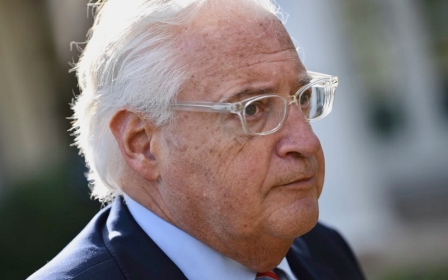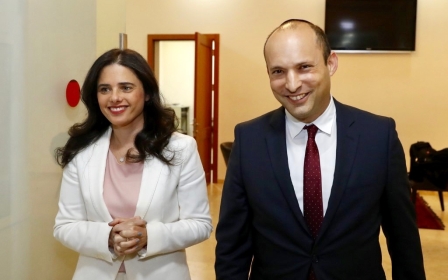Israeli press review: Netanyahu attempts to shield himself with first gay minister

Israel gets its first gay minister
Making headlines across Israeli media in recent days has been the appointment of the country’s first openly gay minister, Amir Ohana.
New Justice Minister Ohana is a member of the ruling Likud party, and a devotee of Prime Minister Benjamin Netanyahu.
Ohana’s appointment is expected to last only until the upcoming elections in September, but it carries a symbolic value for two reasons.
Firstly, although Ohana’s politics in the Likud party have been a disappointment to many in the LGBTQIA community as he has often voted against progressive legislation, the minister’s appointment nevertheless is an important first.
New MEE newsletter: Jerusalem Dispatch
Sign up to get the latest insights and analysis on Israel-Palestine, alongside Turkey Unpacked and other MEE newsletters
Secondly, Ohana has frequently railed against the Israeli justice system, accusing it of having a “left bias” and vowing to weaken the judicial branch of government.
Writing in left-leaning Israeli daily Haaretz, Yossi Werter said Ohana’s appointment was a way for Netanyahu to undermine attorneys and judges handling his multiple corruption cases.
Netanyahu tries to drag out legal woes
Elsewhere in Israel’s justice drama, Netanyahu continues to battle his corruption charges.
The prime minister instructed the attorney-general, through his personal lawyer, that he will attend a hearing over the charges on 2 October, Ynet news site reported on Monday.
Netanyahu had wished to postpone the hearing, as it falls just days after Israel’s 17 September election, leaving him little wiggle room as he seeks to escape prosecution.
The attorney-general’s refusal to postpone the hearing was labelled as “unjust” by Netanyahu last week, Israeli daily Haaretz reported, and the premier waited until the last moment to acknowledge he will attend.
Labor reshuffles in attempt at rejuvenation
Following a miserable result in Israel’s soon-to-be-repeated April elections, the Labor party has begun a shake-up in the hope its fortunes will be reversed in the next polls.
On Tuesday, party chairman Avi Gabbay announced he will not compete for the party leadership during the next election, Ynet reported.
Under his watch, Labor received the lowest number of parliamentary seats in its history: only six (5 percent of the Knesset), compared to its highpoint of 55 in the 1965.
Also stepping aside is General Tal Rousso, one of the party’s six MKs, who announced that he will leave political life and retire from the party leadership.
The three frontrunners for leadership now are Amir Peretz, a former union leader who headed the party in the past and served as defence minister under Ehud Olmert; Ehud Barak, who was prime minister between 1999 and 2002; and Stav Shaffir, who at 34 could become the youngest leader in the party’s history.
Shaffir was a student when she became a leaders of the social protests of 2011 and 2012. It remains to be seen if any of the three has a plan to reverse the party’s downwards trajectory.
Middle East Eye delivers independent and unrivalled coverage and analysis of the Middle East, North Africa and beyond. To learn more about republishing this content and the associated fees, please fill out this form. More about MEE can be found here.




